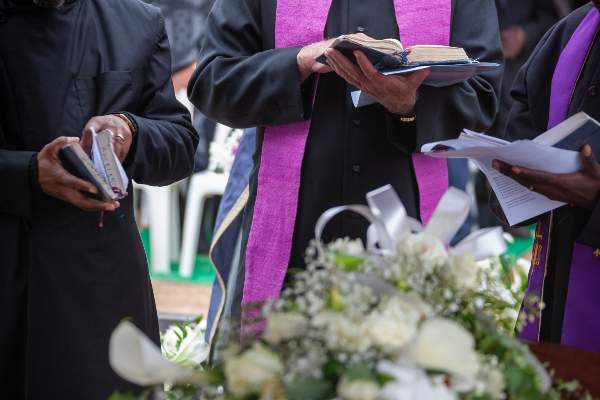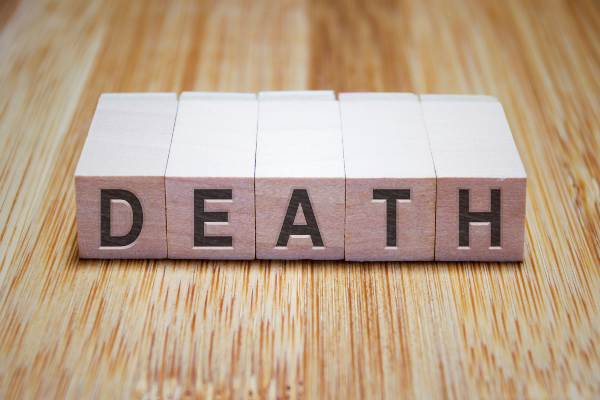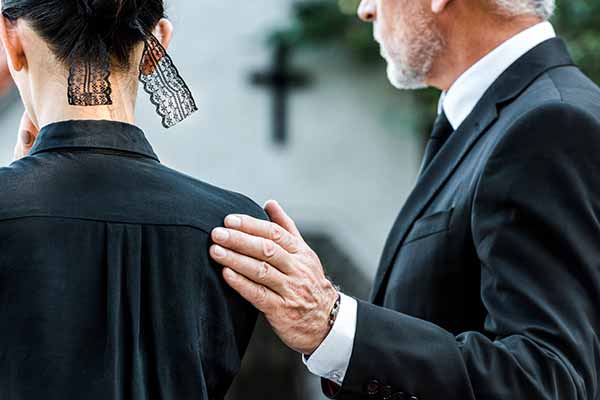Losing a loved one can cause a lot of emotional trauma and distress, especially if the death was due to someone else's negligence or wrongful act. Thankfully, Florida laws can help ease the pain and suffering during these difficult times in the form of a wrongful death claim. If you feel like you want to file a wrongful death lawsuit against the responsible party, make sure to have wrongful death lawyers by your side to make the process a lot less painful.
According to the Florida Wrongful Death Statute, a wrongful death action is when the death of a person is caused by negligence, wrongful action, or breach of contract of the other party. This may include the following circumstances:

An easy way to determine this is if you asked yourself "if the person was alive following that incident, would they have been awarded personal injury compensation?". If the answer to that is yes, then you have the grounds for filing a wrongful death lawsuit.
Wrongful death claims are handled differently in Florida compared to other states. With other states, the surviving family can directly file a claim; however, Florida laws only allow an official representative to file the case.
Usually, the representative is named when a person established their estate plan. In this estate plan, the person usually assigns someone to carry out any decisions regarding their estate at the time of their passing. However, what if the deceased doesn't have an estate plan and hasn't appointed a representative yet? In cases like these, the court appoints a representative or executor on the deceased person's behalf. Representatives can be the spouse, the parents or an adult child of the deceased.
As for those who will be awarded damages once the process is over, here are the eligible parties:
You can still file a wrongful death claim even if the negligent party is in the hands of the law because a crime has been committed. Wrongful death claims are civil lawsuits, which are different from criminal offenses. Think of it as something similar to a personal injury claim, except the victim is deceased. The process behind a criminal proceeding and civil lawsuit is also different, so they can exist side-by-side and not be detrimental to the other.
Also, with criminal proceedings like homicide or manslaughter, the end goal is to deliver the person to justice and imprison them for their crimes. On the other hand, civil lawsuits seek monetary compensation for another party's fault and no jail time is involved. With criminal proceedings, the party accountable for the person's death must be found guilty beyond reasonable doubt for the courts to sentence him. With civil lawsuits, you only need to present an abundance of quality evidence of fault to get compensation.
There are a lot of cases wherein aggrieved families fall back on these claims when criminal proceedings don't go the way they want them to. Usually, the other party is let go or receives a lighter sentence than what they feel is just. In cases like these, they have the wrongful death claim to hang on to.
After winning the lawsuit, plaintiffs may be awarded damages to compensate for the death of their loved one. Under Florida's wrongful death statute, compensation comes in two categories: those that are paid out to the deceased person's family or relatives, and those that are paid out to their estate.
Monetary damages that can be awarded to the deceased's family include:

What is Pain and Suffering?
Damages for pain and suffering is defined as the mental pain and emotional trauma that the surviving family has to go through because of the unexpected death of their loved one. While this is the most difficult to quantify, several parties can qualify for financial compensation from pain and suffering:
Damages can be awarded to the deceased's estate as well:
It is understandable that surviving family members may not have lawsuits in mind following the death of their loved one. They want time to grieve and respect the memory of the deceased. However, all lawsuits have a statute of limitations, and for a wrongful death lawsuit, the statute of limitations is up to two years.
Sometimes, surviving family members don't file a claim because the other party has gone into hiding. Take note that even if the other person is on the run from the law, what's important is that you file the complaint and get the process started within the 2-year window.
Also, the 2-year statutes of limitation doesn't apply to cases where manslaughter or murder was involved.
In cases where the deceased has an executor or legal representative, most surviving families don't feel the need to contact wrongful death attorneys. Although a legal representative may be competent enough to file a claim, there's no guarantee that they're also well-versed in the field of civil lawsuits.
Also, hiring a lawyer is recommended for surviving family members who were appointed as representatives by the court. While the thought of representing yourself may seem tempting, it's still better to seek legal counsel rather than do it on your own. Remember, not all wrongful death lawsuits are cut-and-dried. Things get more complicated when the other party is a huge corporation or business.
If you are filing a claim against a major hospital for medical malpractice, there are a lot of complexities involved. Should you just target specific physicians, or should you sue the entire hospital? The same is true if you're dealing with a work-related death. Proving an employer's negligence, resulting to death would be difficult to prove, especially if you're dealing with a huge corporation. Also, big businesses usually have an expert legal team backing them up, and they'll try their best to devalue your case so you won't get any damages for it.
Hire a personal injury attorney with experience in wrongful death claims. These attorneys know the ins and outs of these claims and know how to handle big businesses even when they push back. Responsible parties often feel like the surviving families are easy to intimidate, especially since they are still mentally affected by the death of their loved one. However, with an objective and clearheaded ally by your side, you can guarantee that the process continues moving forward.

Although winning a wrongful death claim will never bring back your loved one, the process is so vital for surviving family members because it can give them peace of mind. These claims are also one way of ensuring that the families are able to provide for themselves financially after the loss of their provider. Ultimately, it also gives families the feeling that justice has been served on the part of the responsible party.
Here at VG Law, we have personal injury lawyers with a proven track record of success in wrongful death claims. We know claims of this nature are usually emotional and complex. Allow us to eliminate the emotional distress from the process for you. Call us today and let us know how we can help you with your case.
Meta Description: If another's wrongful act caused a loved one’s death, a wrongful death claim can ensure the surviving family members are protected, financially or otherwise